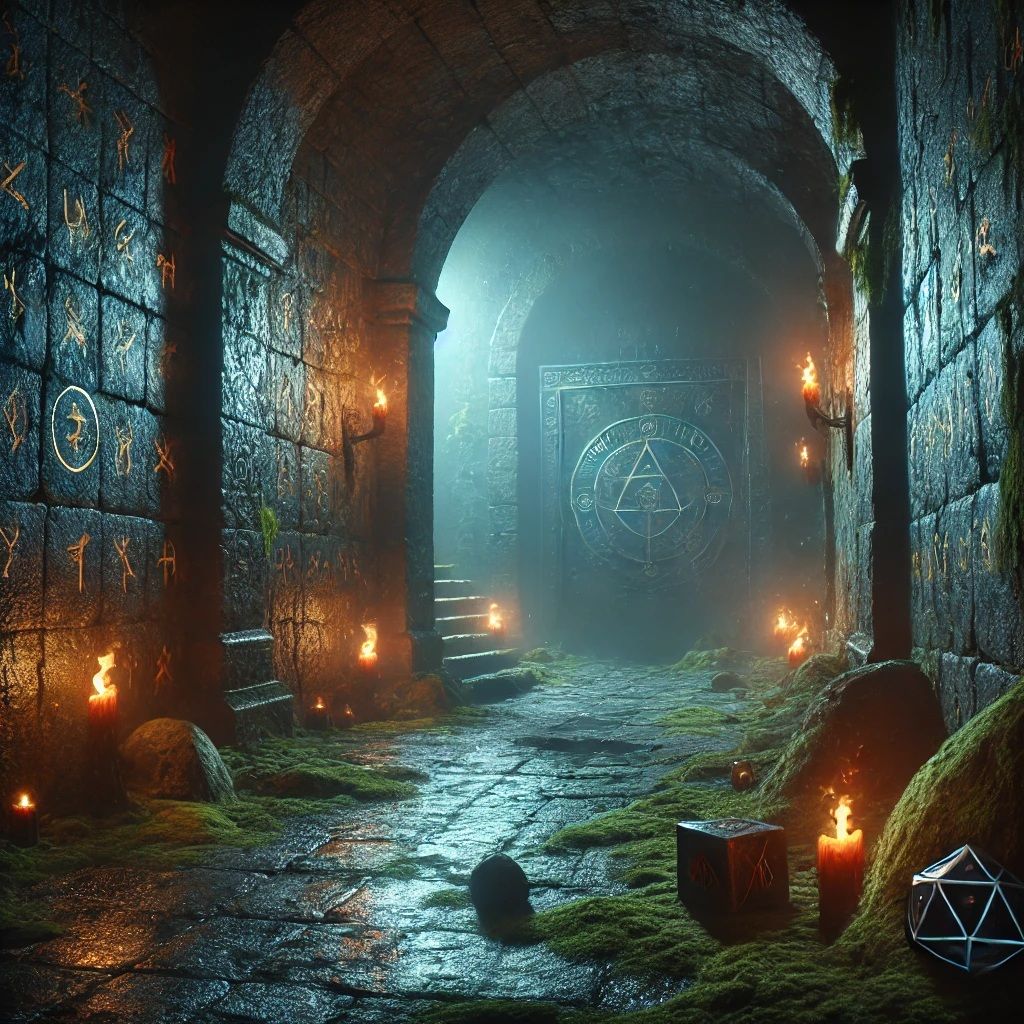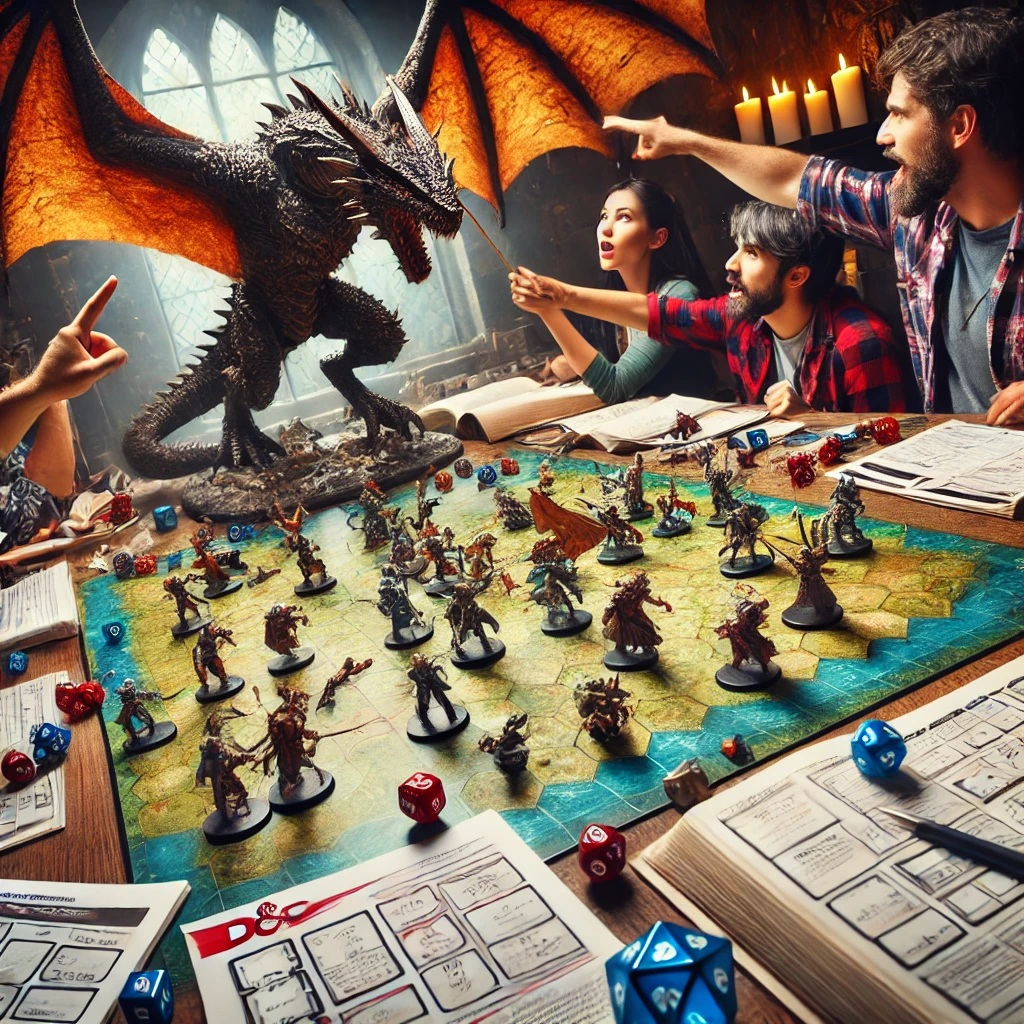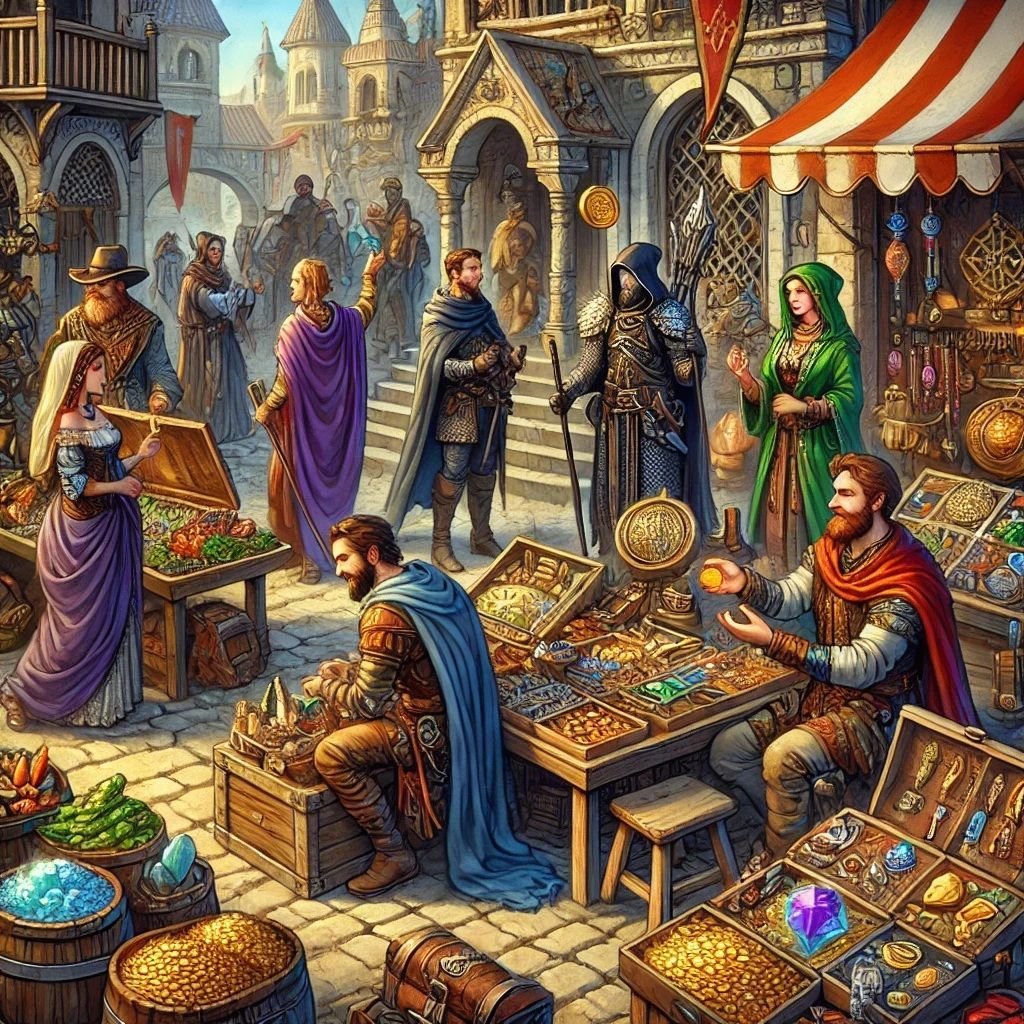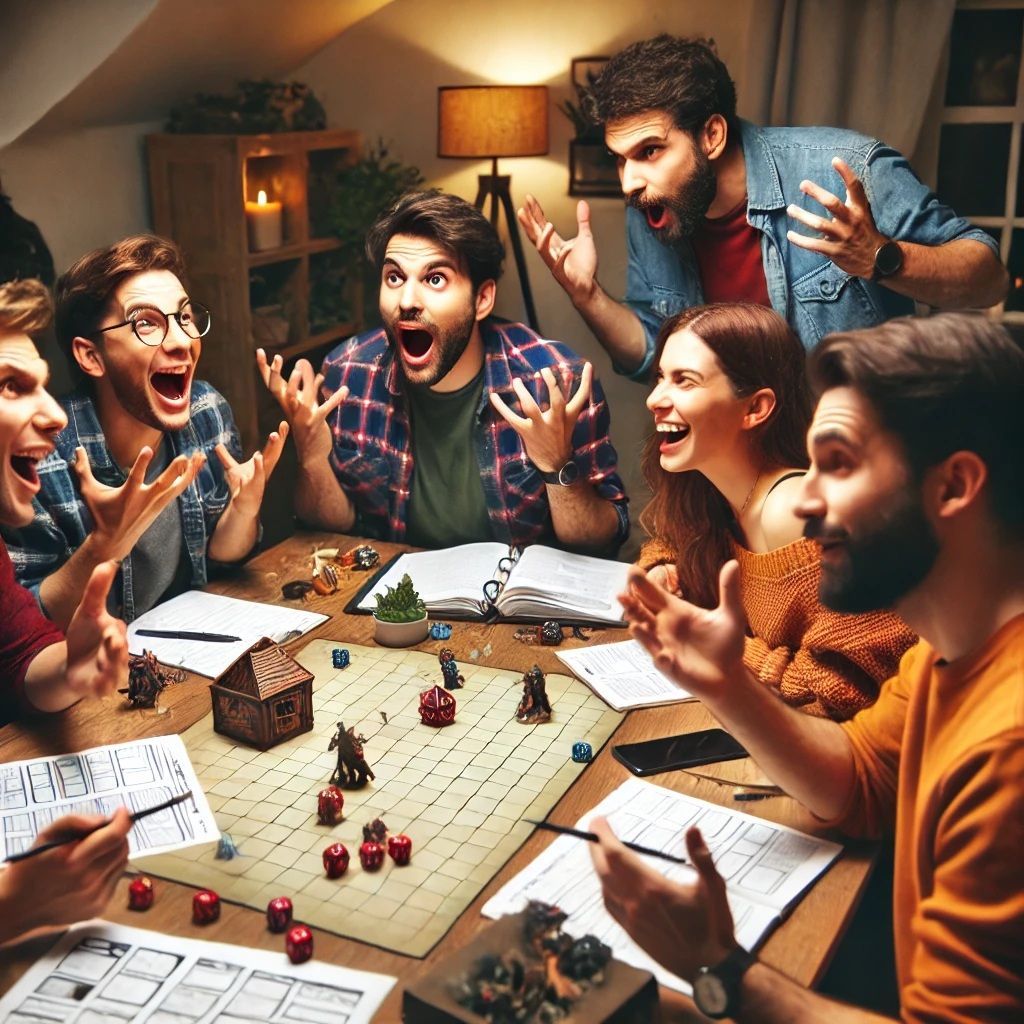How to Handle a TPK (Total Party Kill) Without Killing the Campaign
Okay, you killed your party, now what?
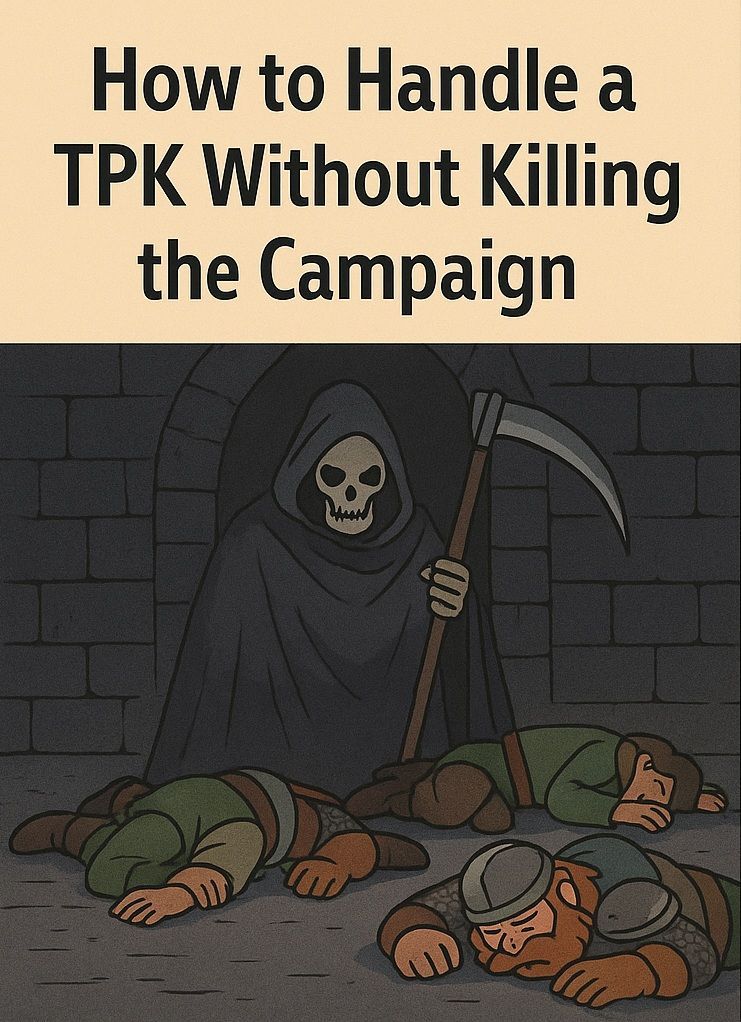
Dear Readers,
It’s a moment that every Dungeon Master dreads and every seasoned player has either experienced or narrowly avoided—the Total Party Kill, or TPK. Whether it’s the dragon’s breath catching everyone in its deadly blast, a cunning villain’s trap springing shut with perfect precision, or just a bad streak of dice rolls in the wrong place at the wrong time, TPKs can feel like the campaign is about to crash and burn. But take heart: a TPK doesn’t have to be the end. In fact, it can be a creative turning point, a thrilling narrative twist, or a moment of legend in your gaming group’s history.
In this blog post, we’re going to delve deep—dragon-hoard deep—into how to handle a TPK without killing your campaign. We'll look at the causes, the emotions, the options, and the strategies to make the most out of even the darkest moments at the table.
What Exactly is a TPK?
A TPK (Total Party Kill) occurs when every player character in the party is incapacitated, killed, or otherwise removed from play in a single encounter or event. It can be the result of overwhelming enemies, tactical missteps, underestimating the threat, or sometimes just plain bad luck.
But a TPK isn’t always just about hit points dropping to zero. It can be the end of an arc, the start of a mystery, or the rising action of a whole new story.
The Emotional Fallout
Before we talk strategy, we have to acknowledge that a TPK is emotionally impactful.
For players, it can feel like weeks or months of investment have just gone up in smoke. Characters they’ve grown attached to, stories they've built, and goals they were pursuing—gone.
For the DM, it can feel like failure. Maybe you worry that the encounter was too hard or that you didn’t properly telegraph the danger. Maybe you feel guilt, even if you ran everything by the book.
Here’s the key: a TPK is only a failure if you treat it like one.
Handled thoughtfully, a TPK can be an unforgettable moment that deepens your campaign world, surprises your players, and elevates the stakes for everything that comes after.
Step 1: Take a Beat
Don't rush to fix things in the immediate aftermath. Whether the TPK happens mid-session or at the end, pause. Let the moment land.
Ask your players how they’re feeling. Be honest about your own reactions. If emotions are running high, consider ending the session a bit early and picking things up next time. Give everyone—including yourself—a little space to reflect.
Step 2: Reflect on the Cause
Was the encounter fair? Was it telegraphed properly? Did the players make choices that led them into danger knowingly?
Answering these questions can help you understand the context of the TPK. If it was truly unexpected or felt unfair, you may want to course-correct. If it was a logical consequence of the story, lean into it.
Also consider:
- Was there a way out the players missed?
- Was the dice just unkind that night?
- Did everyone have fun—even in defeat?
Step 3: Communicate with Your Players
Gather feedback. How do they feel about what happened? Would they prefer to rewind time, resurrect their characters, or move on with new ones?
Some players may want closure, others might be excited for a new challenge. It’s your job as DM to balance these preferences and find a path forward that keeps the group engaged.
Transparency is your ally. Collaborate on what comes next.
Step 4: Choose Your TPK Response Strategy
Let’s explore some popular and creative ways to keep the campaign alive after a TPK:
1. The "It Was All a Dream" (or Illusion) Twist
This one’s controversial, but it can work if you lay the groundwork. Perhaps the party was ensnared by a powerful illusion, or the fight took place in a dreamscape or alternate reality. They wake up—battered, maybe with a new scar or condition—but alive.
Pros:
- Keeps the characters
- Provides a strong emotional moment
Cons:
- Can feel like a cop-out if not properly justified
2. Divine Intervention
Maybe a god has plans for the party and won’t let them die just yet. The group awakens in a divine realm, having been given a second chance—possibly with conditions or a quest in return.
Pros:
- Dramatic and thematic
- Introduces new story arcs
Cons:
- Risks overusing deus ex machina if done too often
3. The Next Generation
Introduce a new party—maybe the apprentices, children, or allies of the fallen heroes. Let the world feel the weight of their predecessors’ deaths. The new group could seek revenge, answers, or redemption.
Pros:
- Allows for fresh characters and dynamics
- Keeps the world’s continuity intact
Cons:
- Some players may mourn their old characters for a while
4. Resurrection with a Cost
Whether via a powerful NPC, dark ritual, or mysterious artifact, the party is brought back—but not without consequences. Maybe they’ve lost memories, gained a curse, or owe a debt to a dangerous entity.
Pros:
- Balances continuity with stakes
- Great roleplaying potential
Cons:
- Requires careful planning to avoid feeling arbitrary
5. Let the TPK Stand, but Shift the Campaign Focus
Honor the deaths and transition the campaign to a new phase. The players roll up new characters, and the world continues—with scars from the TPK.
Examples:
- The villain succeeds due to the party’s failure
- The world plunges into darkness
- A resistance movement forms in the fallen party’s memory
Pros:
- Embraces the impact of the TPK
- Lets players explore new character arcs
Cons:
- May feel like a reboot to some players
6. Split Realities or Afterlife Adventures
Take the story metaphysical. Maybe the party wakes in the afterlife—or a liminal space between worlds. Let them journey through death itself to earn their way back.
Pros:
- Highly creative and unique
- Turns defeat into a new kind of adventure
Cons:
- Requires buy-in from the players
- May be too surreal for some groups
Step 5: Weave the TPK Into the Narrative
Whichever strategy you choose, don’t just handwave the TPK away. Make it matter. Make it lore.
Did the villain become a tyrant because of the party’s defeat? Is the landscape permanently altered due to the battle? Are there songs sung about their final stand?
Let the players see the ripples. It deepens the world and validates their experience.
Step 6: Learn and Adjust
Even if the TPK was a powerful narrative moment, you should still assess whether adjustments are needed going forward:
- Are encounters appropriately balanced?
- Is the pacing of rests, resources, and clues manageable?
- Are you giving enough hints about danger levels?
This isn’t about nerfing your world. It’s about making sure your players have agency and information to make meaningful decisions.
Step 7: Support the Players Emotionally
Some players take character loss hard. Give space for those feelings. Encourage memorials in-game. Let them talk about their old characters as part of the world’s memory.
You might even run a one-shot flashback adventure with the fallen party—something fun and light to celebrate what was.
Bonus: Let the Players Write the Legend
A fun post-TPK idea: have each player write a short tale, bard song, or myth about how their character met their end. Then, introduce those stories as in-game lore in taverns or temples.
You might find:
- A version where the rogue died nobly
- A poem exaggerating the wizard’s final spell
- A folk tale blaming the bard for the entire mess
This creates catharsis and connection.
Final Thoughts: Embrace the Unexpected
TPKs aren’t the end—they’re just the campaign daring you to evolve. They’re opportunities to explore new paths, themes, and consequences.
As a Dungeon Master, your job isn’t just to challenge your players—it’s to inspire, surprise, and adapt. A TPK handled well can become a tale your group retells for years, laughter and drama alike.
So the next time your party wipes, don’t panic. Pick up those narrative pieces and craft something incredible.
Until next time, Dear Readers...

















